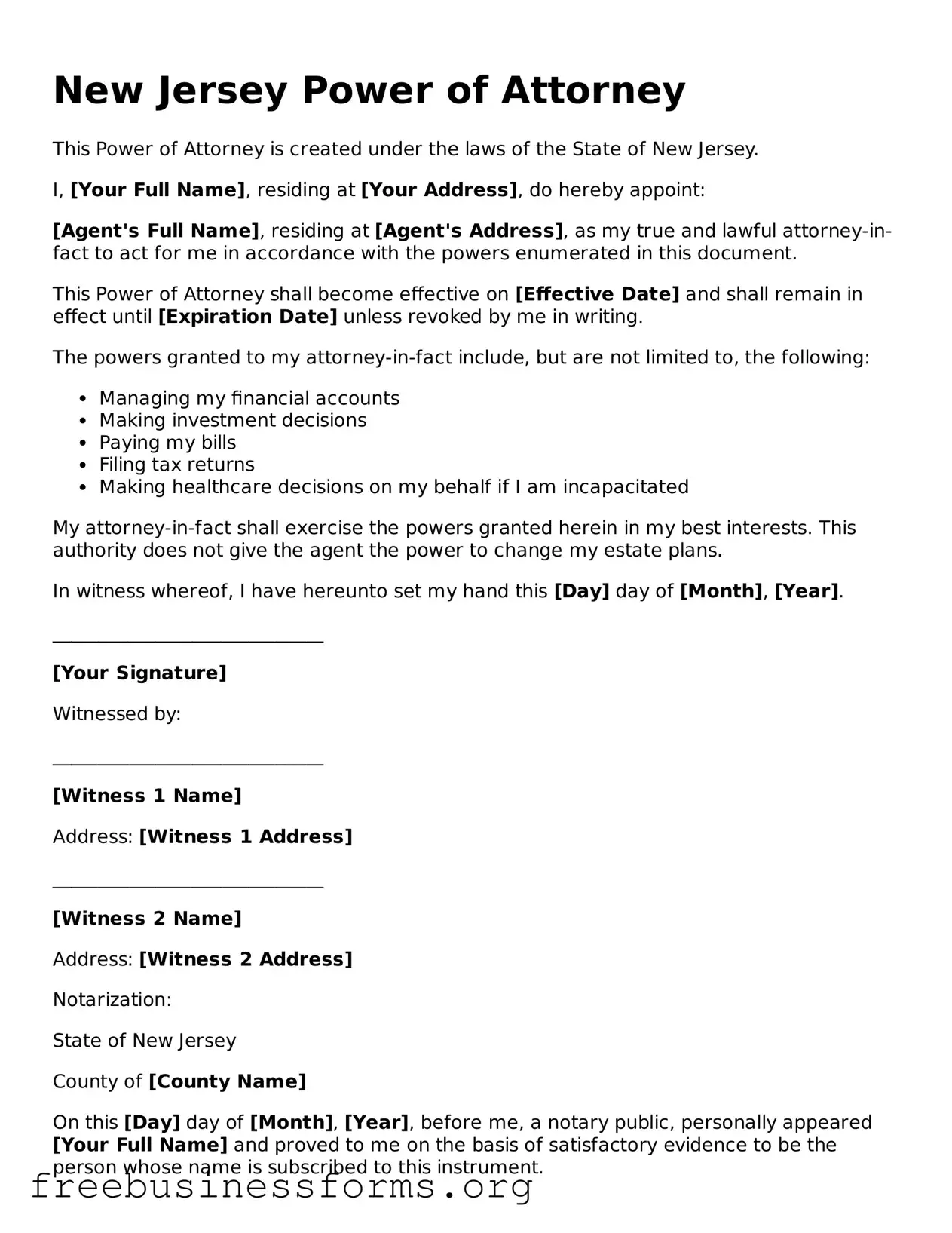Blank Power of Attorney Template for New Jersey
A Power of Attorney form in New Jersey is a legal document that allows an individual to designate another person to make decisions on their behalf. This arrangement can cover a range of responsibilities, from financial matters to healthcare choices. Understanding the nuances of this form is crucial for ensuring that your wishes are honored when you are unable to act for yourself.
Open Form Here

Blank Power of Attorney Template for New Jersey
Open Form Here

Open Form Here
or
↓ PDF File
Quickly complete this form online
Complete your Power of Attorney online quickly — edit, save, download.